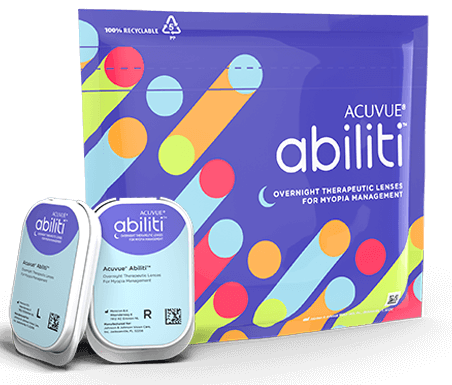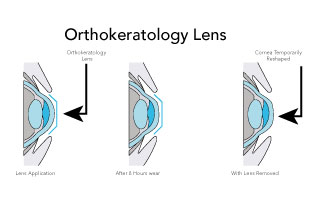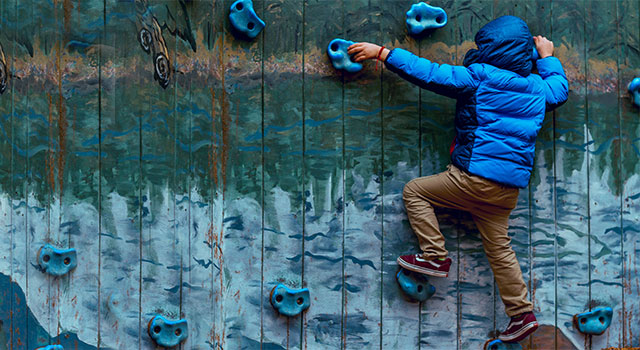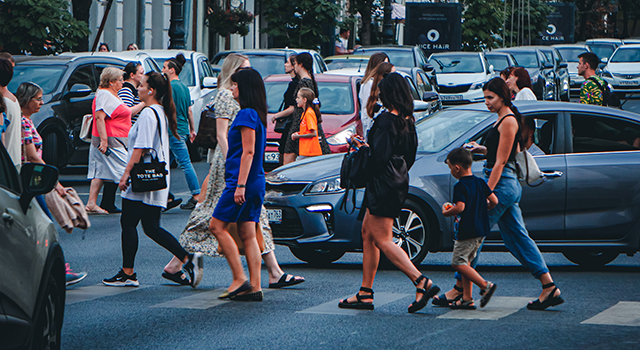Myopia Eye Care Specialist
Myopia, also called nearsightedness or shortsightedness, is the inability to see things clearly unless they’re situated close to your eyes. It is the most common refractive error among children and young adults. Most patients with this condition wear eyeglasses or contacts to correct their vision.
However, myopia is more than an inconvenience; it can pose a serious risk to your child’s long-term vision. As a child develops and the myopia rapidly progresses, the child is at a higher risk of developing dangerous eye diseases later in life. Namely, retinal detachment, macular degeneration, glaucoma and cataracts. Thankfully, Myopia Control can help.
Myopia Control solutions include eye drops, specific contact lenses, and glasses, which can help slow down the rapid visual deterioration that occurs with myopia. Contact Laguna Beach Myopia Control Center At Laguna Eyes Optometry and see how Myopia Control can help your child experience clearer, sharper vision and a higher quality of life.

What is Myopia?
Myopia develops when the eye grows too long from front to back, which causes light to focus in front of the retina rather than directly on it. For those with nearsightedness, distant objects appear blurred while nearby objects remain clear.
This condition develops during childhood, when the eyeballs are experiencing rapid growth, and tends to progress gradually or rapidly into the late teen years. Myopia can be easily corrected using corrective glasses or contact lenses.
Childhood myopia is typically diagnosed between the ages of 5 and 7 and worsens during the eye’s rapid growth years. The prescription tends to plateau at around age 12.
The Growing Prevalence of Myopia
Myopia is becoming increasingly prevalent around the world, with a recent study showing that close to 30% of the world’s population is currently myopic. Alarmingly, by 2050, close to 50% of the global population will be myopic. That’s a staggering 5 billion people!
Myopia rates have shot up in the last 20 years. In China, between 10-20 % of primary school children are myopic. This number increases to 50% for high school students, and by the time they reach university, 90% of the student body is nearsighted.
The good news is that thanks to Myopia Control, you can protect your children from landing on the wrong side of this statistic.

What is Myopia Control?
“Myopia Control” is a series of treatments that eye doctors use to slow the progression of myopia in children. Our myopia control treatments can induce changes in the structure of the eye by diminishing the stress and fatigue linked to the development and progression of myopia. Several studies have indicated that these treatments successfully slow down the progression of nearsightedness in children and teens.
The Laguna Beach Myopia Control Center currently offers several different customized treatment options to slow the progression of myopia. Our doctors work closely with each family and customize treatment programs for every child based on their unique needs.
The treatments offered include:
- Atropine eye drops
- Multifocal contact lenses
- Orthokeratology (“ortho-k”)
Patients are carefully monitored by Dr. Alicia Harrison and reviewed every 6-12 months to assess the efficacy of the chosen treatment modality.
Laguna Beach Myopia Control Center is a practice that offers evidence-based treatment to prevent the onset or reduce the progression of myopia in pediatric patients.
Because we stay on the forefront of the latest research, you can be sure that Laguna Beach Myopia Control Center is maximizing the chances of your child’s success.
ACUVUE Abiliti Overnight Therapeutic Lenses
Abiliti™ lenses from Acuvue are a new type of orthokeratology contact lens designed to help slow the progression of myopia, or nearsightedness, in children. The lenses are worn overnight to gently and safely reshape the cornea. When the lenses are removed in the morning, your child is left with clear vision all day long, without needing daytime contact lenses or glasses.
Abiliti lenses are an excellent choice for active children or kids who participate in water activities. It is important to note that while these lenses can help slow the progression of myopia, they do not cure it, and regular eye exams are still necessary to monitor and manage the condition.

Patients We Typically Work With
- Patients with progressive myopia (-0.25DS or more in the last 2 years)
- Patients with refractive error: MSE (sph + 0.5*cyl): +0.50 DS to -6.00 DS, no limit on DC
- Patients at risk of becoming myopic due to a family history of myopia (one or two myopic parents)
- Patients who spend over 3 hours a day doing near work (reading, studying, writing)
- Patients who spend less than 6 hours a week outdoors
- Patients under the age of 16
What Should the Patient Expect?
To monitor and assess the efficacy of the treatment, all our young patients undergo an extensive vision evaluation, provided by Dr. Alicia Harrison. This includes:
- Axial length and retinal shape measurements
- Cycloplegic axial and peripheral autorefraction
- Corneal topography and choroidal thickness measurements
- Lifestyle questionnaire (including how much near work and outdoor activity they engage in per day/week)
- Discussion of the results
- Development of a personalized treatment plan
At Laguna Beach Myopia Control Center, we provide our patients with effective, customized treatment to control the progression of myopia. By stopping or slowing down the progression of myopia, we reduce long-term risks to best ensure that your child enjoys the world with healthy eyes throughout his or her life.
Laguna Beach Myopia Control Center serves patients in Laguna Beach, Huntington Beach, Laguna Niguel, San Clemente, and throughout California .
















